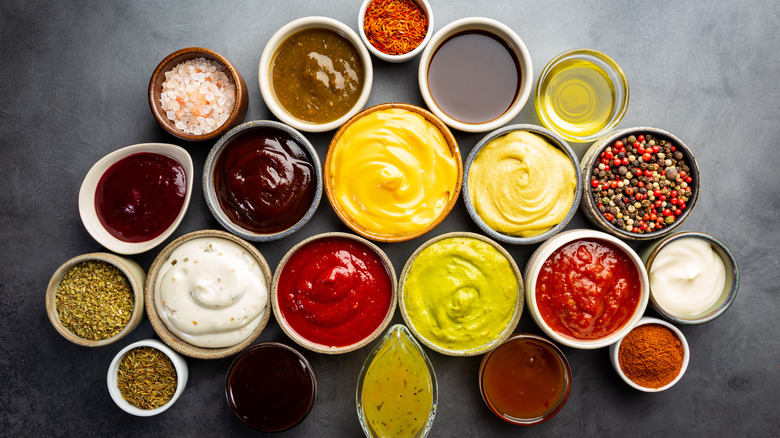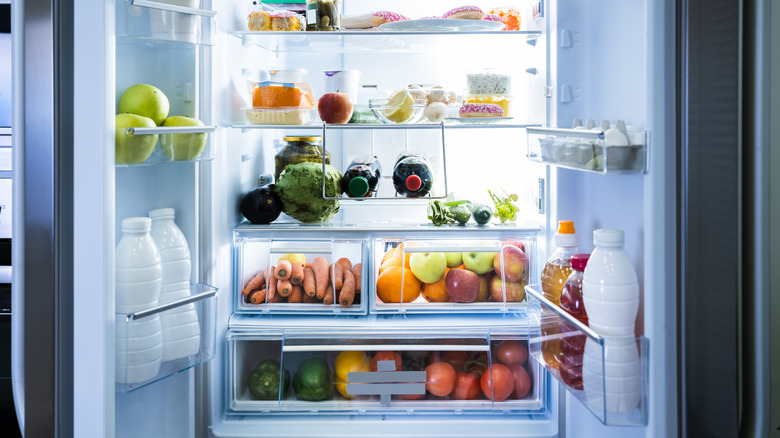The Best Place To Store Condiments In Your Refrigerator
As food lovers, we can get behind a great salad, a stellar main dish, or an indulgent dessert — but one category that deserves more recognition is the wide world of condiments. Where would our food be, after all, without the flavors and textures of classics such as ketchup, mustard, and Worcestershire sauce, or the more unusual tastes of onion jam or the spicy Indian pickle known as achar?
If you, too, are a fan of condiments, then it's more than likely your refrigerator (and pantry) is packed with them — and they just might be scattered all over the place. Who among us hasn't gone searching for a carton of eggs or a container of leftover soup, only to have to push about three jars of hot sauce out of the way? If you haven't organized your condiments in a while, read on, because there's a specific place in your refrigerator where you should be storing them.
Store condiments in your refrigerator door
Your refrigerator door, with its shallow shelves perfect for holding jars and bottles, is the ideal place to store all of your condiments, so if you're not already doing so, it's time to transfer your mustards, hot sauces, and jams. According to Eating Well, refrigerator doors are perfect because condiments — which usually have long shelf lives and often include preservative ingredients such as salt and vinegar — are the type of food in your fridge that's best able to withstand temperature fluctuations. As the outlet explains, your refrigerator door — which, after all, swings open and closed throughout the day — will experience the most change in temperature as cool air is let out and warm ambient air comes in. Condiments, which can have a shelf life of up to a year and a half in the case of mustard (via StillTasty), aren't as affected by these temperature changes as many other foods would be.
And just as you should store condiments on your refrigerator door, there are other food items you shouldn't store there. For example, the American Egg Board points out that eggs, which are highly perishable, are better stored on an inside shelf to help them stay fresh longer. Similarly, while many of us tuck a carton of milk into the refrigerator door, U.S. Dairy says milk actually does better at the back of the fridge, where it's coldest.

